'The Notorious 1880 Police Raid of the Cross-Dressing Ball at Temperance Hall' by Mimi Matthews4/5/2018 Mimi Matthews is the author of The Pug Who Bit Napoleon: Animal Tales of the 18th and 19th Centuries and A Victorian Lady’s Guide to Fashion and Beauty (Pen and Sword Books, July 2018). She researches and writes on all aspects of nineteenth century history—from animals, art, and etiquette to fashion, beauty, feminism, and law. Her scrupulously cited articles have been published on various academic and history sites, including the Victorian Web and the Journal of Victorian Culture, and are also syndicated weekly at BUST Magazine. When not writing historical non-fiction, Mimi authors exquisitely proper Victorian romance novels with dark, brooding heroes and intelligent, pragmatic heroines. She is a member of Romance Writers of America (PAN), The Beau Monde, Savvy Authors, and English Historical Fiction Authors. Her bestselling debut Victorian romance The Lost Letter was released in September 2017. “…one of the foulest and most disgraceful orgies that ever disgraced any town.” The Huddersfield Daily Chronicle, October 1, 1880. On September 24, 1880, the Manchester City Police received information that a fancy dress ball scheduled to be held that night at the Temperance Hall in York Street, Hulme, was going to be of an improper character. According to the September 27, 1880 edition of the London Evening Standard, the hall had been engaged a few days prior by the Association of Pawnbrokers’ Assistants. However, upon investigation, Detective-Sergeant Jerome Caminada discovered that the association knew nothing of the ball and that “the room had been hired under false pretence.” Having reported these findings to his superiors, Caminada was ordered to keep watch on the building overnight. He arranged for a “large number of officers in uniform and plain clothes” to be stationed in the immediate vicinity of the Temperance Hall. As the London Evening Standardrelates: “About nine o’clock cabs began to arrive at the hall, the occupants being young men, who in most instances brought portmanteaus or tin boxes with them. A considerable number were in female attire and among the costumes were several low-bodied dresses. In all 47 persons entered the building, and of these 22 were dressed as women.” 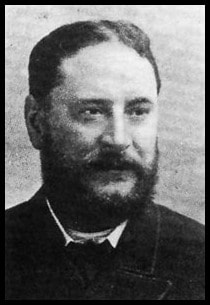 Jerome Caminada, 1890. Jerome Caminada, 1890. The September 29, 1880 edition of the Lancaster Gazette reports that all the windows of the ballroom had been “carefully covered with calico or paper to prevent observation.” Only one window had been left cracked “a few inches” for ventilation. It was through this window that Caminada and “two or three of his constables” watched the suspects over the next several hours. What they saw was later described by Mr. Cobbett, the prosecutor in the case, as “one of the foulest and most disgraceful orgies that ever disgraced any town.” What was it about the ball that was so disgraceful? The primary complaint seems to have been that the company was composed entirely of men—half of which were dressed as women. What were they doing? Understandably, Victorian newspapers could not go into a great deal of detail on this score, however, according to the London Evening Standard: “The company were engaged chiefly in grotesque dances, such as are familiar at low-class music-halls.” Expounding on this rather vague description, the Huddersfield Daily Chronicle states that: “They danced some strange kind of dance, in which they kicked their legs about a great deal…In addition to the persons dancing, there were others sitting on benches round the room who engaged in the same indecent practices.” Even more damning—at least, by Victorian standards—was what the gentlemen did when they were not dancing. In court, Mr. Cobbett would later reference: “…certain proceedings which were seen in an ante-room adjoining the dancing-room” and “…the retiring room carefully hidden, into which they seemed to have gone in twos.” The orchestra for the ball consisted of a blind man playing a harmonium. The London Evening Standard identifies the man as Mark Letcha of Manchester. The Huddersfield Daily Chroniclestates: “They had a musician, and the man engaged was blind. That fact seemed strangely consistent with the precautions which were taken to prevent observation. The blind man played a harmonium upon a kind of platform at one end of the room, and the other people in the room danced at intervals.” After several hours of observation, the police prepared to enter the hall and make their arrests. As the London Evening Standard relates: “Caminada then knocked gently at the door, but received no answer. He knocked in all seven times, and then some person inside said—‘Who’s there?’ The officer had learned that the password adopted among the company was ‘Sister,’ and, imitating a female’s voice, he gave the word. The door was at once opened, and the police rushed into the building.” The gentlemen in the room did not go quietly. The Lancaster Gazette reports that “a sharp struggle ensued” with several of the dancers attempting to physically eject Caminada and his officers from the ballroom. In addition: “Several of the prisoners at once doffed their fancy apparel, and three tried to escape through a window, but they were foiled in the attempt, police officers being stationed outside the building.” With the assistance of “a number of working men” who happened to be in the vicinity, the police subdued and arrested all 47 of the gentlemen and carted them away in handcuffs. According to the London Evening Standard, the police also transported “several cab loads” of the gentlemen’s apparel which was subsequently “lodged at the Town Hall.” The men were later charged with soliciting and inciting each other to commit “improper actions.” This was considered a misdemeanour and, if found guilty, the Huddersfield Daily Chronicle reports that the gentlemen would be subject: “…to be kept in penal servitude for a term not exceeding 10 years and not less than three years, or to imprisonment for a term not exceeding two years, with or without hard labour.” Caminada later testified that several of the gentlemen at the fancy dress ball were men of “vicious character” with whom he was well acquainted. The remainder of the men appeared to be of a better class—though it is not clear just how well to do they were. They were also strangers to Manchester, which prompted the presiding magistrate, Mr. Rickards to state (as quoted by the Lancaster Gazette): “…he was glad to learn that the great majority of the men came from places at a distance—ten being from Sheffield—and he sincerely regretted that some of the prisoners were Manchester men.” This did not incline Mr. Rickards to be any more lenient. When Mr. Blakewell, a solicitor for some of the defendants, asked the Bench to approve bail, arguing that “a number of gentlemen from a distance” were of good position and that it would be “a very unfortunate thing” if they were required to remain locked up until the following week, Rickards was wholly unmoved. As the London Evening Standard reports: “Mr. Rickards, the presiding magistrate, stated that after what he had heard stated in Court that morning, he did not feel inclined to grant the Prisoners any favour whatever, and he had no sympathy at all for them. They must go to prison.” The following Monday, newspapers, including the London Evening Standard, printed all 47 of the men’s names. That same day, most of the men were granted bail. Upon their release, the Huddersfield Daily Chronicle states that “an extraordinarily large crowd besieged the Manchester City Police Court.” Apparently, the public was hoping that the men would still be dressed in women’s clothing. To avoid such a scene, the police brought the prisoners first to the Town Hall where they were made to change out of their ball dresses and into “men’s apparel.” A week later, the men appeared again before the magistrate. There, Mr. Cobbett presented his evidence against them, arguing that: “…if ever there was a case in which there was solicitation and incitement to commit such an offense as this, that this was the one.” Cobbett told the justices that, if they thought the offences had been proved, it was their duty to “send the prisoners for trial at the assizes.” The counsel for the defendants insisted that Cobbett had not proved his case. The Justices consulted over the matter and, after some deliberation, the Huddersfield Daily Chronicle reports that they decided: “…to bind the defendants over in two sureties of £25 each to be of good behavior for twelve months, or in default to be imprisoned for three months.” Cross-dressing in the Victorian era was an ongoing basis for arrest and prosecution. In 1870, for example, the trial of famous cross-dressers Thomas Ernest Boulton and Frederick William Park made headlines across the country. Much like the gentlemen in the Manchester case, Boulton and Park were charged with incitement to commit an unnatural offence. They were later acquitted. Today, it is tempting to view the case of the 1880 police raid of the cross-dressing ball at Temperance Hall in a humorous light. However, it is important to remember how serious accusations of homosexuality were in the 19th century. Imprisonment and hard labor were the end result of a successful prosecution, but even if acquitted, a man’s reputation could be ruined, his family devastated. As the 1996 book Sexualities in Victorian Britain explains: “Even the suspicion of homosexuality was enough to condemn a man not only in the public eye but also to his closest male friends.” When the newspapers printed the names of those in attendance at the ball, it was a cruel and very public outing. One can only hope that those men were able to go on with their lives after their arrests and find some degree of happiness in a society which was not yet ready to accept them for who they were. Mimi Matthews is the author of The Pug Who Bit Napoleon: Animal Tales of the 18th and 19th Centuries (to be released by Pen and Sword Books in November 2017). She researches and writes on all aspects of nineteenth century history—from animals, art, and etiquette to fashion, beauty, feminism, and law. Sources
McKenna, Neil. Fanny and Stella: The Young Men who Shocked Victorian England. London: Faber & Faber, 2013. “The Raid at a Fancy Dress Ball.” The Huddersfield Daily Chronicle. October 1, 1880. “Raid of a Fancy Dress Ball in Manchester.” Lancaster Gazette. September 29, 1880. “Raid on a Fancy Dress Ball.” London Evening Standard. September 27, 1880. “Raid Upon a Fancy Dress Ball.” Illustrated Police News. October 9, 1880. Sexualities in Victorian Britain. Bloomington: Indiana University Press, 1996.
0 Comments
Leave a Reply. |
Sex History ContentsIf you would like to submit an article, please fill out a submission on the Contact page Archives
September 2020
|
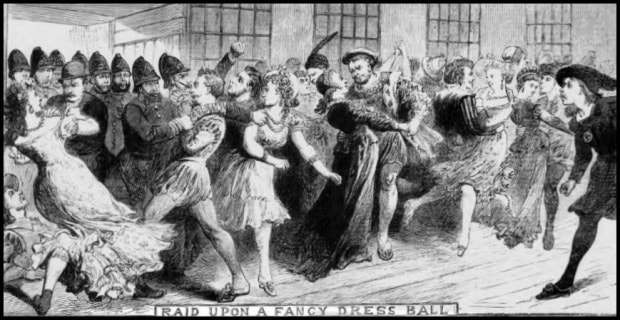
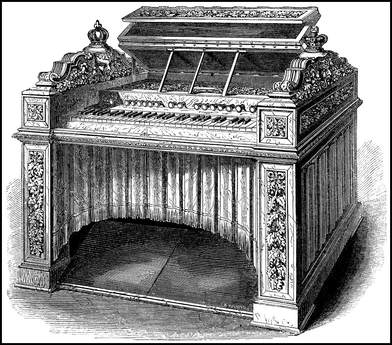
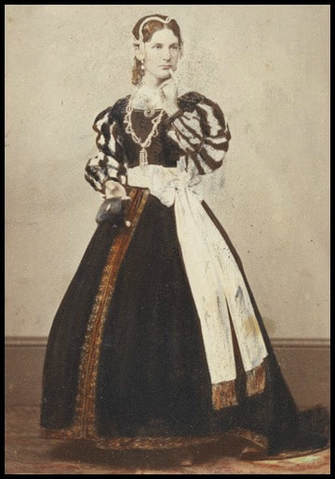
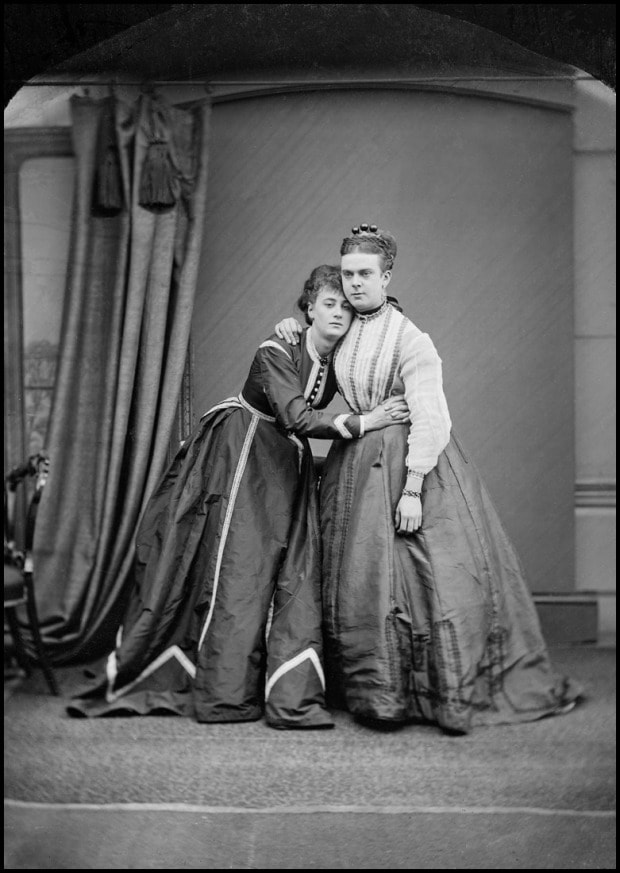
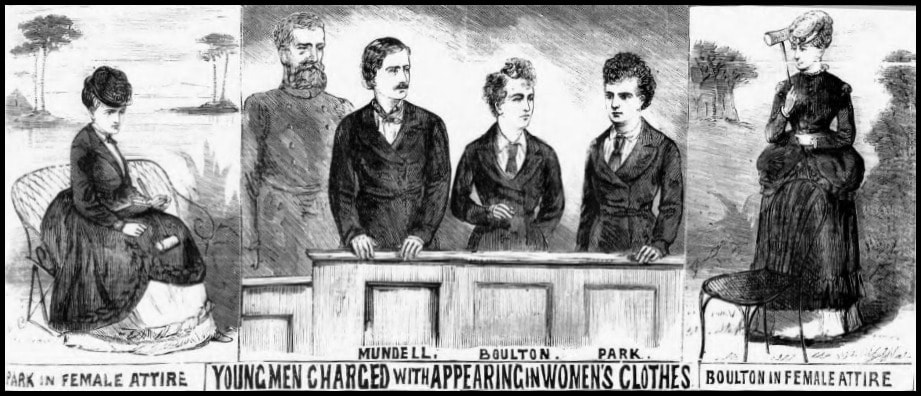
 RSS Feed
RSS Feed